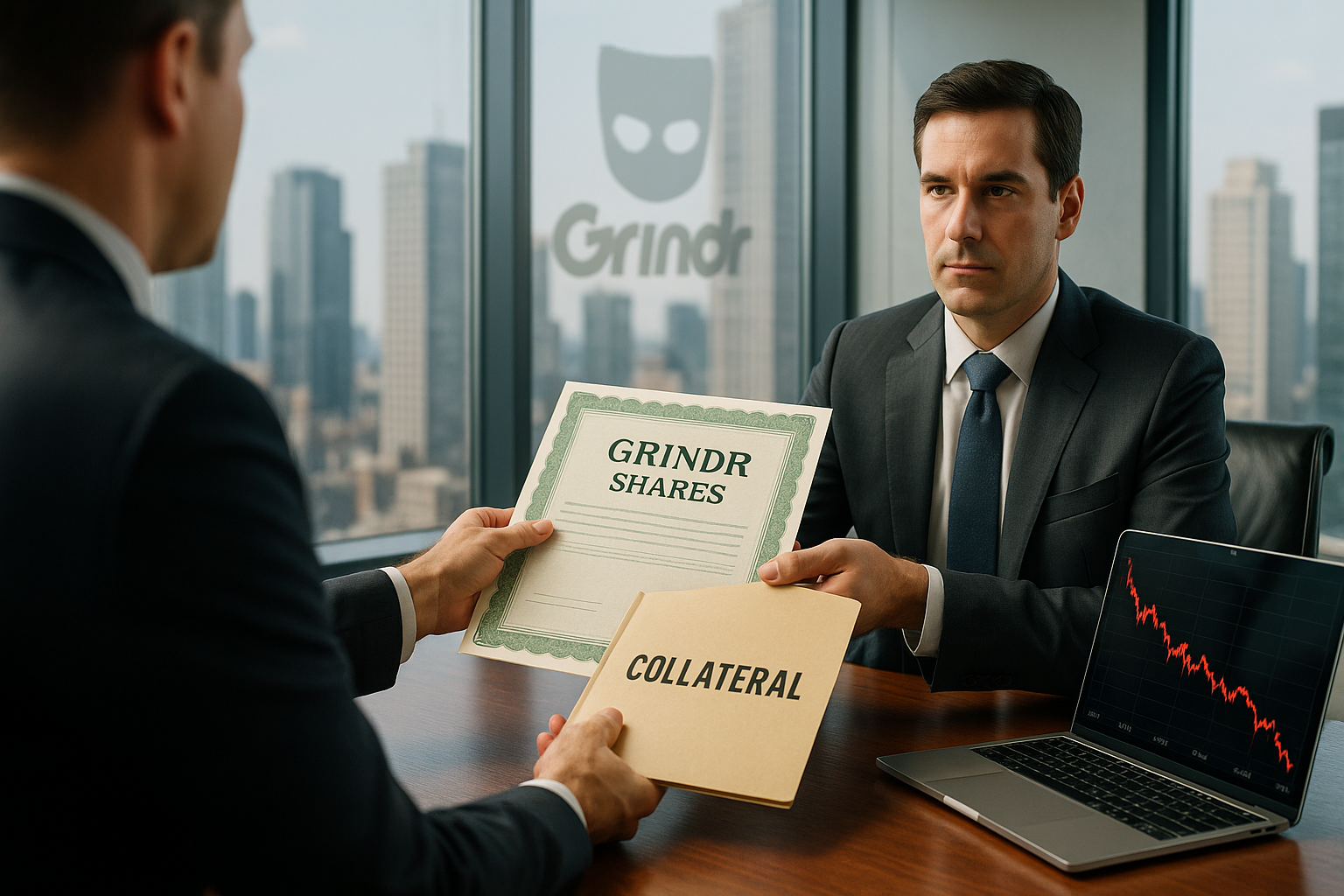Grindr, the LGBTQ+ dating app that connects users for everything from innocent chats to... well, you know... finds itself caught in a particularly awkward financial entanglement. And no, I'm not talking about the app's functionality.
Controlling shareholders Raymond Zage and James Lu have landed in what might be the most uncomfortable financial position this side of explaining crypto losses to your parents: having their lender actually sell the collateral backing their personal loans.
Here's what happened: A unit of Temasek (that's Singapore's state investment firm, for those not versed in sovereign wealth funds) apparently seized and sold shares that were backing personal loans made to at least one of Grindr's controlling insiders. Ouch.
I've covered finance for years, and this situation represents what I call the "leverage double-whammy" problem. You borrow against your stock, feeling pretty clever about accessing cash without triggering taxable events. Then—surprise!—the stock tanks, your collateral value drops, and suddenly your lender is selling your shares from under you. Not exactly the financial strategy they teach at Wharton.
So what's the solution? Walk away and lick your wounds?
Nope. In a move that has raised more than a few eyebrows among the analysts I've spoken with, Zage and Lu are reportedly looking to double down rather than exit. They're apparently in talks with Fortress Investment Group to secure debt financing to take the entire company private at a $2.4 billion valuation.
Let that sink in. They're potentially adding corporate leverage to solve a problem created by personal leverage. It's like using one credit card to pay off another, except with a few billion dollars at stake.
The timing here is particularly interesting. Grindr only went public in 2022 through a SPAC merger (remember when those were all the rage?). We're talking about a round-trip public-private journey in roughly two years—a corporate version of speed dating, if you will.
This whole arrangement highlights something we don't talk about enough in financial journalism—the invisible but powerful connections between executives' personal finances and corporate decision-making. When controlling shareholders pledge shares as loan collateral, they've created a hidden risk factor that rarely gets proper attention in company disclosures.
The question Grindr's other shareholders should be asking: Does taking the company private serve their interests, or primarily benefit the controlling shareholders who find themselves in this predicament?
Look, borrowing against stock holdings isn't inherently bad. Plenty of wealthy executives do it to avoid immediate tax hits. But it creates these hidden fragilities that only become visible when markets turn south—kind of like those dating app filters that look great until you meet in person.
One can't help but wonder what those Temasek investment committee meetings were like. "So we're making personal loans to dating app executives secured by volatile stock? What could possibly go wrong?" Well... now we know.
For the millions of Grindr users swiping away, the potential go-private transaction probably won't change much about their experience. For the rest of us, it's a reminder that behind all the corporate structures and SEC filings are humans making very human—and sometimes very desperate—financial decisions.
Sometimes, what happens in the boardroom is more awkward than anything happening in the app.
